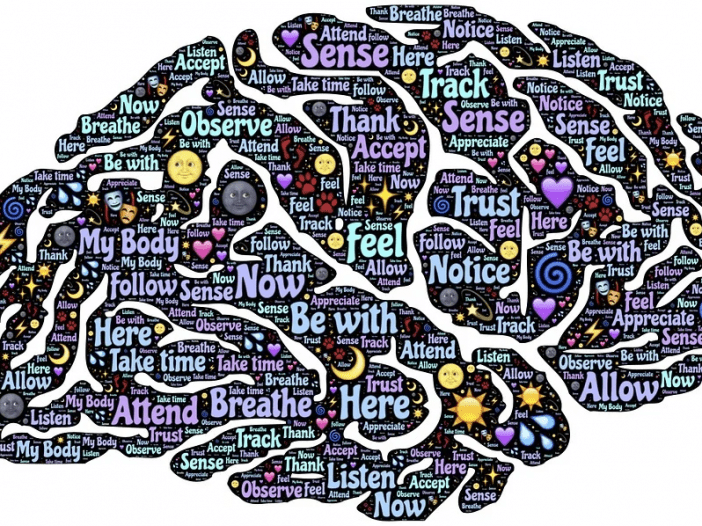
For centuries, sages from different cultures and religions have taught us about the concept of a spiritual awakening. An awakening is spiritual enlightenment that causes a person to awaken to their true self, stop living for their ego, and create a new connection to the world around them. If you find yourself feeling more enlightened, you may be asking: why did I have a spiritual awakening? There isn’t one single reason that people experience a spiritual awakening, but there are some common causes.
Why Did I Have a Spiritual Awakening? Top 4 Reasons
A spiritual awakening can be triggered by different things, ranging from small realizations to life-altering events. For some, an awakening seems almost spontaneous, but for most, the awakening comes after a period of darkness or a major trauma or life-altering event. For some, enlightenment is reached after a beautiful soul comes into our life and acts as a spiritual teacher or guide. Here are the top four reasons for a spiritual awakening:
1. Feeling discontented with your life
Most of us bounce along from day to day, going to work, exercising, visiting with friends and family, etc. without questioning too much about our purpose or spirituality. There comes a point, though, where some people start to wonder about their place and purpose in the world. These questions can lead to feelings of disconnection and detachment from the things and people they used to enjoy. These feelings can grow into overall discontentment and even darkness as we start to wonder if everything we thought was true about our life was a lie.
Some signs that discontentment in your life may be leading you toward spiritual enlightenment:
You’re reevaluating your beliefs and priorities: It is common to evaluate and make changes to spiritual beliefs during a period of searching for meaning. For some, this translates into choosing a new religion or belief system. For others, it means adding spiritual practices into their life such as meditation or nature walks. Priorities might change as well; enlightened individuals may decide to spend more time with family, for example, rather than pursuing material wealth.
You begin to prioritize spirituality: maybe you walked away from spiritual practices from your past and you are being called back to them now or you have a desire to be more spiritual as a way to create meaning in your life.
You feel alone: If you are feeling lonely during this period of questioning, know that this is common. It can feel very isolating to make a bunch of life changes that your friends and family don’t understand.
2. Your spiritual teachers show up
For some people, meeting a spiritual teacher can be the push they need to steer them toward enlightenment. A spiritual teacher can come in many forms; they may be a kind stranger, a new friend, a spiritual or religious leader, a twin flame or soulmate. There is no rule about who may open a spiritual door for you.
A twin flame is a person with whom you share an intense soul connection; they are like your missing other half or your “mirror soul.” This concept is based on the belief that sometimes one soul gets split into two bodies and when we find the other half, we turn into the person we were always meant to be. A common trait of a twin flame relationship is that it will be both challenging and healing.
A spiritual teacher is a person with the role and responsibility to teach human beings how to connect with themselves and the world around them on a spiritual level and to help them through a spiritual evolution that will connect them with their true purpose.
3. Trauma
Trauma can come in many forms such as a serious accident, near-death experience, life-threatening illness, divorce, losing a spouse or a child, war, pandemic, quarter-life or midlife crisis, or mental health crisis.
When we experience trauma, our brain shuts down all nonessential systems and activates the sympathetic nervous system and the mammalian brain. As a coping mechanism, our brain releases stress hormones and activates the flight or fight response.
Traumatic stress has serious consequences for the brain; it can change the brain’s chemical balance and structure and activate the amygdala, potentially affecting the way we function and process emotions. For some the effects are severe, such as the development of posttraumatic stress disorder (PTSD) or severe anxiety. Others may begin to act more impulsively or have sudden difficulty managing their emotions.
When we consider the effects of trauma on the brain, it is not so surprising that the challenges it brings can end up being the first step on a spiritual journey.
4. Major life changes
Two of the biggest life changes that affect our experience and place in the world are losing a job and moving to a new place.
The mental health impacts of losing a job are often major. There are several studies that show a link between unemployment and a decrease in mental health, including anxiety, depression, and loss of happiness.
Researchers have found that moving is extremely stressful and that each additional move was associated with an increased risk for psychological issues. When we move, everything becomes unfamiliar; the roads, the brands available in the grocery stores, the culture, etc. Not to mention, the effects of leaving our friends, family, and former housing behind. A move can be downright disorienting and it can lead to a type of separation anxiety called relocation depression.
These types of life altering events can shake us up and push us to seek spiritual enlightenment.
AVS7 Basic: Aura Video Station Basic
You can take your wellness business or wellness center to the next level with Inneractive’s unique aura imaging systems, like the Aura Video Station 7. Is this Aura video camera right for you? It comes with a full suite of programs that visually display energy field information.
This imaging system has five applications that deliver simultaneous in-depth aura visualizations. These pioneering applications show chakra strength, a representation of a client’s aura colors, and many more revealing facets of a client’s energy, based on personal belief systems. Learn more.







